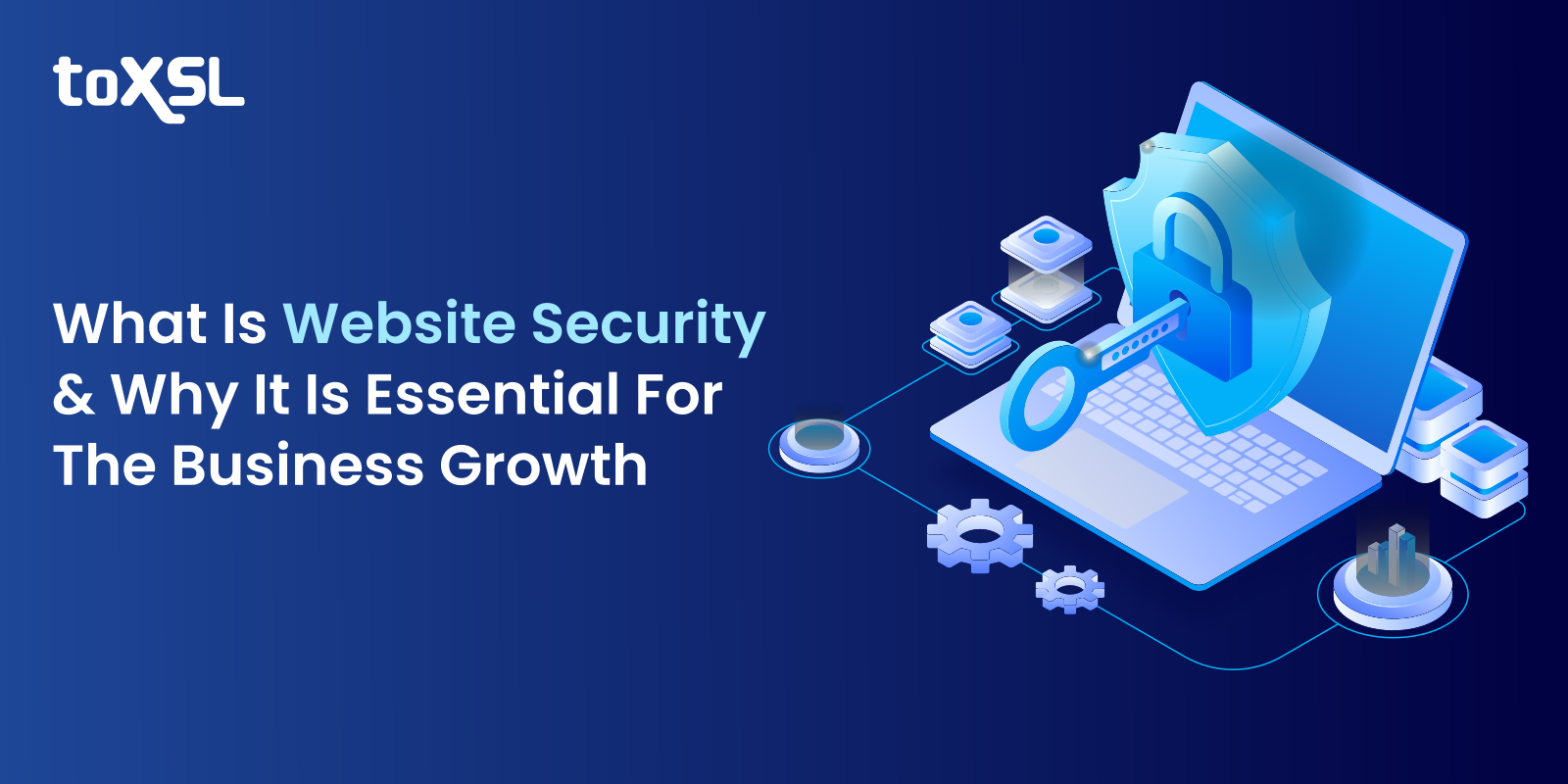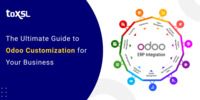- Feb 13, 2026
- ERP/CRM Applications
- 7189
Share this post on:

Businesses these days rely on digital channels, and the most popular platfroms includes website and mobile apps. Websites is one of the most reliable ways to reach out the audiences, but businesses worry about the website security.
With businesses shifting paradigms toward the digital landscape, cybersecurity becomes one of the threats, and it becomes vital for businesses to secure their websites.
A previous report from Google suggested that around 50 million websites worldwide are infected with malicious codes, and the number continues to rise. The impact of the breached website can be huge, no matter what your business size is.
The blog post covers details about the website's security, how it matters, and all actions you should take place to ensure it is not compromised.
What is website security, and how does it matter?
Website security is a robust approach for protecting your website against malfunctions, phishing, cybercrimes, cyber-attacks, or other hacking attempts. If you are unable to protect your business security, you may become vulnerable to attacks that could literally destroy or affect your business negatively. Here are a few issues you will become vulnerable to.
-
Client Data Breach, that could even lead to a lawsuit
-
Attribution, revenue loss, privacy issues, and more.
-
Destroy your company's reputation
-
Vandalism of your website
-
Domain Blacklisting makes it further difficult to retain the customers.
Common types of Website Security Risks businesses face
1. Malware
Malware is a kind of software that damages, destroy or get unauthorized access to your system.
2. Blacklisting
If the search engines find a warning sign on your website, you will get a notification with a warning sign. However, these signs make visitors leave your page and even your site can be removed from the search engine pages.
3. Sensitive Data exposure
Hackers use the software to pass sensitive information like URLs, poor codes, sessions that raise vulnerability, and more.
4. Broken Authentication and Session Management
When you are unable to implement the broken authentication and session management properly, the password and other sensitive data get exploited.
5. Cross-Site Request Forgery
A cross-site request forgery attack forces the visitor to perform a nondesired action on your website.
A few tips that ensure website security
1. SSL Certificate
You must ensure that a security certificate (SSL) is installed by default. An SSL does not encrypt your server itself; instead, it encrypts the data transferred between the website visitor and the server, keeping communication in transit secure. Any personal information collected from visitors is protected through encryption. To maintain this protection, it’s important to regularly check SSL certificate status to ensure it is valid and properly configured. Having an SSL certificate also helps boost website rankings. Along with SSL, setting up a CAA record allows you to control which Certificate Authorities can issue certificates for your domain. You can quickly verify this using a CAA checker to keep your site’s certificates secure.
2. Keep your software Updated
In a time of rapid changes and advancements, the software update is another crucial factor that keeps pace with the latest releases. However, hackers continue to look for different approaches to breach your website. Keep your software updated and reduce the risk of data breaches.
Benefits of Protecting your Website
Technical and operational safety is important for your website security. Here are a few reasons that depict the same.
1. It protects your customers
With the ongoing e-commerce trend, most people depend on the website for products and services. So the user provides all the information including the credit/debit card details. This may cause some hackers to intentionally steal your sensitive data, but the opportunity must be avoided. You must protect your information and ensure it is encrypted. Taking all these internal measures helps you protect the data better!
2. Protects your assets
Securing your website also includes handling your physical assets. The hackers are expert enough, and they don’t only take away customer information, but also install the virus on your system that directly impacts the physical machine. The high-cost viruses can destroy your system, and you may have to hire others to get the virus removed. It can go worse, and you might have to replace the machine if the damage is more!
3. Provides a secure reputation
Securing the website is one of the most crucial tasks that ensure its reputation does not have any impact. A negative and bad reputation can destroy your business, and this could lead to a security breach on your website. Nowadays, there are a lot of websites getting hacked all the time, and this negativity hampers brand growth. Build a positive and robust reputation for your brand and let others trust you as a name in the market.
4. Prevents loss of sales
Website hack or vulnerability can lead to loss of productivity and downtime. It helps in your sales conversion that you might be missing out. Business owners know the importance of sales, which ensures business stability.
5. Offers you a competitive advantage
On the contrary, businesses must ensure to take the necessary precautions and steps to protect their website. It offers them a competitive edge and lessens the risk of exposure while competitors are exposed to online threats.
6. Improved SEO and Ranking
Google prioritizes a website that is not blacklisted and doesn’t have a history of exposing its client's data.
Time to protect your business with us!
The cybercrime attacks continue to rise, and there is no sign of stopping. So you must be curious about how to get a secure website? No worries, ToXSL is a leading website development company, that has designed thousands of websites and applications.
We have an expert team of developers working together to develop robust websites and ensure your business stays competitive. And we ensure to keep your website updated with the latest implementation and technologies.
So, if you are concerned and want to develop a website for your business that fulfills your expectations, we are here for you.











